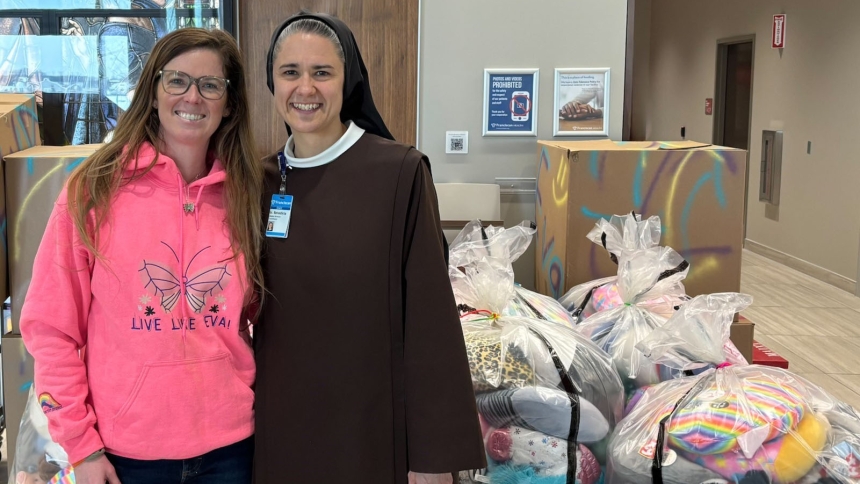
As published in the Northwest Indiana Catholic on July 3, 2016
Whenever I am blessed to interact with young Catholics, I am always inspired by beautiful examples of faith, challenged with searching questions, admiring of a deep desire for God and authenticity and praying for their spiritual growth and protection in this world of such enormous possibilities and potential dangers. An important component of our synod will be young Catholics - high schoolers, collegians and emerging adults.
Last January, Kevin Driscoll, our director of the Youth and Young Adult ministry, offered a 24-hour retreat for young Catholics, which I was privileged to be a part of. Eighty young people responded! I was amazed and edified; the experience taught me that our young people are thirsty for God, idealistic about changing the world and wanting to make their unique contribution to the Church. Sometimes, us oldsters can dismissively discount the insights and gifts of young people, unconsciously shutting them out of full participation in the life of our communities.
What a tragedy that is! Whenever I ask anybody what concerns them most about the Church, the response invariably is: “We need to reach our young people and keep them active in the faith.”
Several years ago, I read a remarkable book, “Young Catholic America: Emerging adults in, out of and gone from the Church.” Authored by a group of sociologists who tracked a study group of 18-year-old active Catholics for seven years, the book offers some conclusions about what factors seem to determine which young Catholics stay active in the Church in their 20’s and which simply check out.
The determinants were the following: Catholics who learned the basics of the faith, read Scripture, discovered a method of prayer, had parents or an adult figure who modeled faith for them and found a community which supported their discipleship had far better odds of remaining active in the Church. The role of fathers who modeled faith and were engaged in their children’s lives was highly significant.
These conclusions give us direction concerning where we need to put our efforts regarding young Catholics. The impact of parents and/or adult figures as role models of active Catholic discipleship is huge.
How do we help form parents themselves in the faith, so that they, in turn, will form their children? I point to my parents’ example of belief, prayer and involvement in the Church as the single most significant inspiration for my vocation to the priesthood. How do we teach our young people how to read, study and pray the Scriptures so that the narrative of salvation in the Bible makes sense to them as the interpretive key for their own lives?
We talk about prayer all the time but do we really teach people how to pray, developing a method and discipline that works for them? Continuing to study the basic teachings of the Church, serve the poor and marginalized and become active in a parish that nurtures discipleship must be priority goals for all of us in leading, forming, serving and loving young Catholics. Clearly, we need to embrace our own faith with generosity and conviction if we hope to create a spiritual culture which will nurture and develop the religious sensibilities of the young.
I want our young people to be engaged in the synod process all the way through, from the parish sessions through the deanery meetings, to the synod itself and beyond. Their voices and experiences need to be heard because they not only live the faith now, but will carry it forward well into this 21st century, decades after us older folk are gone.
As we animate our people to read the pastoral letter and engage in this exciting synod process, don’t forget about our high school students, collegians and emerging adults. They want to live their faith, find a nurturing community, embrace high ideals, change the world and live authentically. When we think of the Scriptures, David, Jeremiah, the Virgin Mary, many of the apostles were young. When we ponder the saints, many of them reached the heights of spiritual perfection at a very young age - Therese of Lisieux, Aloysius Gonzaga, John Berchmans, Tarcisius and Maria Goretti.
I want to affirm my great love, esteem and admiration for the young people of our diocese. In all of the events and encounters I have had with you, I am always inspired, amazed, encouraged and fired up. Thank you for that great witness!
I ask our young people to not give up on the Church or on adults. Things may move too slowly sometimes; maybe we don’t always listen or welcome each other. Regardless, this moment of the Year of Mercy and the synod is your moment to know and live Jesus, to build the Kingdom of God and to allow the fresh breath of the Holy Spirit to breathe on us anew.
I count on you to help us become fully ourselves in Christ. I love you!
+ Donald J. Hying



